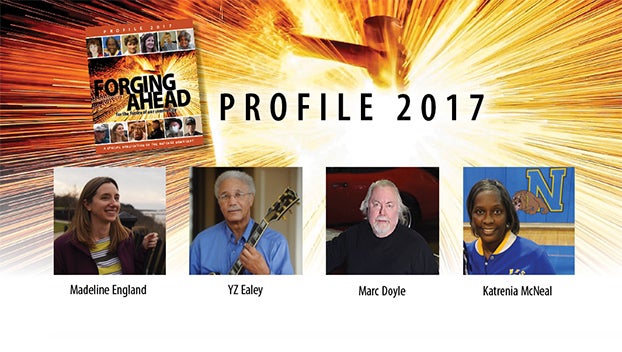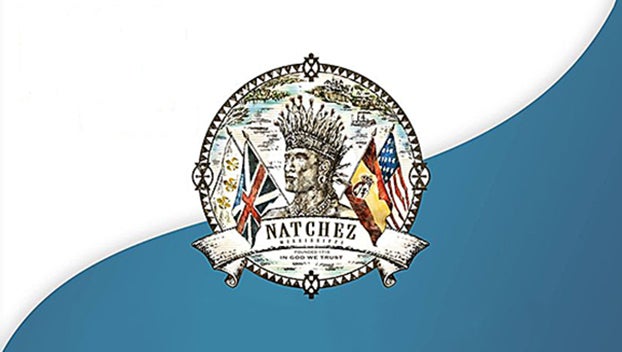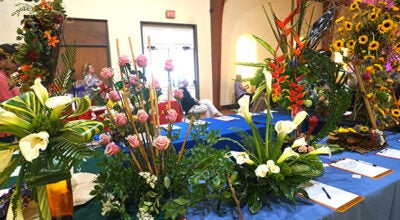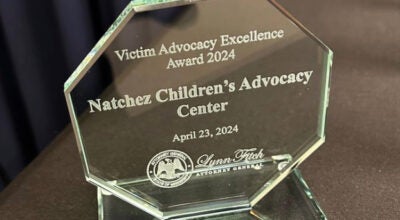Profile 2017: Local residents offer vision for future of community
Published 12:57 am Sunday, February 26, 2017
Every day, Miss-Lou residents get up and get to work.
Law enforcement officers patrol the streets in hopes of a safer community.
Parents help their children navigate the same school hallways they once walked and plan their own futures.
The doughnut maker rises in the wee hours of the morning to ensure tasty treats are hot and fresh for patrons who have made them a local tradition.
For some, work does not mean a “job.” It means volunteering to hammer nails, install drywall and help local families build a better life with a new house.
Some have worked for years and spend their days enjoying the future they worked so hard to create for themselves.
Regardless of what kind of work it is, Miss-Lou residents dedicate a great deal of time and energy forging ahead toward a better future for the area.
Many residents say much remains to do, and the local residents featured in this year’s Profile edition hold fast to their dreams for the future and know it will take everyone working hard and together to get there.
While veteran television news journalist turned documentary filmmaker and author Marc Doyle has a little time for his classic car passion, he and his wife, Chesney, spend the majority of their time working in various capacities toward creating a future for Natchez.
Doyle focuses on working to further develop Natchez as a destination for the creative class and its potential for the local economy.
“I think that Natchez is a prime candidate to become a prosperous town and a regional capital of the creative class,” he said.
Doyle said he “chose happily to come to Natchez where my wife’s family goes back many generations.”
“And to raise our family here because I think Natchez is an ideal place for children to grow up and begin to process their thoughts about the world out there,” Doyle said. “Natchez … has been the landscape through which we have been forging ahead as a family, and we’re very appreciative of the way that the community has opened its arms to us and our children.”
Doyle said he thinks the most important community challenge is racial reconciliation.
“Racial reconciliation means that we address the reality that there are two Natchezes,” Doyle said. “There’s the white Natchez and the black Natchez, and the reality is that there is no future of Natchez, forging ahead or not, without the reconciliation of the white and black communities.”
Racial reconciliation means different things to many people, Doyle said, but in the context of his work with Mission Mississippi, Doyle says racial reconciliation will come through one-on-one relationships with people who are different than one another.
“I believe the way forward in race relations is to have race relations that are real and authentic,” he said.
Local blues musician YZ Ealey says the future of the area depends on one critical issue — education. Hopes for industrial and economic development that Ealey has for the area are directly tied to education, he says.
“That is No.1 for young people,” Ealey said.
Ealey, 79, has spent most of his life making up for an unfulfilled promise to his mother to get an education. He takes every opportunity now to learn more about the world around him.
“The reason I think young people should educate themselves as much as they can is because with the way of life nowadays, compared to other years, education has become a must for young people to survive,” Ealey said. “I just wish so badly and hope that young people would realize how important, with new technology … that the only way they’re going to survive is with an education.
“If they don’t get an education, they’re going to be lost.”
A better education system in Natchez, Ealey said, will come when leaders and residents work together to invest in the education of the city’s children.
“In my view, better education will happen when there is better unity and better harmony with our leaders,” he said.
For native Katrenia McNeal, she, too, believes the future of Natchez lies with its children.
“I hope that the future of Natchez will do more to embrace the children of this community,” McNeal said.
McNeal said she could recall from growing up in Natchez some of the top industrial plants in the city, including Armstrong Tire and Rubber, International Paper and Johns Manville.
“People came to Natchez looking for work,” she said. “We had some to the best schools around here with great teachers. The people of Natchez wanted to continue to make Natchez great.
“If the stakeholders of Natchez want to improve the city, you have to start with the children. When a family is considering moving to another town, one the first things they consider is how safe is it for their children. Employment is major factor. No high-quality jobs are here other than the state or government jobs and Walmart. There are limited activities for the kids to do outside of school activity. … Families travel outside of the city on a monthly basis to entertain our kids and their interest. This is money that could be put into our own community.”
The area should be investing more in its children, McNeal said. That is what it will take, she says, to forge ahead toward a better future.
“Let’s do what we can do to reunite our city,” she said. “Invest in our city. Invest in our city’s recreation. Invest in new schools with updated technology. Invest in our kids and their kids, because the commitment we will give to our city will pay off for us all in the future. What we do now will impact our future forever.”
Natchez native Madeline England traded a career that took her all over the world to return to her hometown where England felt she could make an impact that she said felt more personally significant for her.
The answer to how to forge ahead is complicated, England said, but one key to a successful future for the community is clear.
“I don’t have the answers for how to forge ahead, but together we do,” England said. “No single individual, government department, business, organization or group can address these complex problems singlehandedly. But if we all take action in our own capacities, we all contribute to shared community goals.”
In a way, that is already happening, England said.
“Natchezians are such a passionate group, and we all care so much about our causes,” she said. “We see a need, and we dive right in to address it. But sometimes it feels like a lack of communication or awareness of resources leads to a duplication of efforts or working at cross-purposes.
“We need some fairly drastic yet achievable solutions. A proven way to achieve some fairly drastic changes is a collective impact framework. As a community, we agree upon what the major problems are, abandon personal agendas, set community-wide goals, and work together on common objectives to achieve those through our organizations, social networks, churches, businesses and government. By aligning our efforts, we begin reinforcing efforts, sharing goals and forging ahead.”






